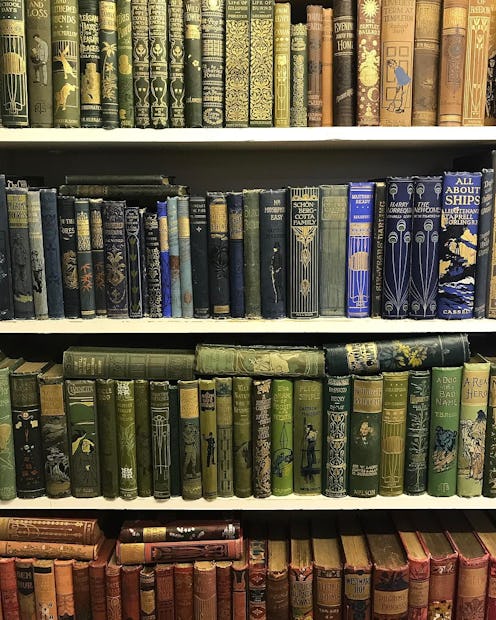Books
25 Splendiferous Words You Should Add To Your Daily Vocabulary
If you're a sesquipedalian (or just a plain old logophile), then you know the power of a prodigious vocabulary. Sometimes it's about adding to your stockpile of words, so you always have the perfect verbiage for any situation. And sometimes... you just come across a marvelous word, and you simply must find a way to shoehorn it into your personal lexicon. I mean, you can never know too many words or read too many books (if you did, you would be a bibliobibuli). Here are a few obscure, splendiferous, and all around awesome words you should incorporate into their daily vocab, especially if you're a book-lover.
Most book-lovers are already way ahead of the game when it comes to having a tremendous vocabulary, anyway. Fiction readers especially tend to have a higher than average vocabulary, with hardcore readers knowing about 8,000 more words than people who only read "somewhat." But why stop there? The more words you know the more you'll get out of the next book you read, right? The more you'll be inspired to learn. And the more you'll sound impressive and/or overly loquacious on first dates. So if you love to read, here are 25 stupendous words to sprinkle casually throughout your daily speech:
Bibliosmia
Bibliosmia, n. The smell of a book. Or, to be more specific, the scent or aroma of a good book.
Hamartia
Hamartia, n. The tragic flaw that usually leads to the downfall of a hero or heroine. For example, Odysseus' arrogance, or Macbeth's willingness to take career advice from witches.
Ballycumber
Ballycumber, n. One of the six half-read books lying somewhere in your bed. First coined by Douglas Adams in The Deeper Meaning of Liff.
Nunchion
Nunchion, n. Food eaten between meals. Like when you should make dinner, but you want to finish this chapter of your book, so you opt for some handfuls of dry raisin bran instead.
Daymare
Daymare, n. An anxiety attack or frightening trance experienced while awake.
Amphigory
Amphigory, n. A poem, which at first appears to be meaningful... but upon closer inspection, is found to be nonsense.
Zeugma
Zeugma, n. A rhetorical device that uses a word in more than one of its senses at the same time. For example, "He opened his heart and his wallet," or "She lowered her hand and her expectations."
Solander
Solander, n. A protective box made in the form of a book.
Inglenook
Inglenook, n. A place by the fire or any other warm and comfortable area (i.e. perfect for reading).
Atramentous
Atramentous, adj. As dark or as black as ink.
Ultracrepidarian
Ultracrepidarian, n. One who offers advice or opinions on something beyond their own knowledge. See: Everyone on Twitter.
Admarginate
Admarginate, v. To write (or doodle) in the margins.
Spoonerism
Spoonerism, n. A transposition of the initial sounds of two or more words. For example, pronouncing "jelly beans" as "belly jeans," or "Sleeping Beauty" as "Beeping Sleauty."
Incunabulum
Incunabulum, n. A book that was printed before 1501.
Lucubration
Lucubration, n. An overly elaborate or pedantic piece of writing, produced after laborious, overnight study. It comes from a word meaning to "work by lamplight" in Latin.
Scandalbroth
Scandalbroth, n. An old fashioned term for tea. Good to know that the true meaning of "tea" hasn't changed in several hundred years.
Nefelibata
Nefelibata, n. Literally, a "cloud walker." One who lives in the "clouds" of their own imagination and refuses to face reality, or one who does not obey the conventions of society.
Dunandunate
Dunandunate, v. To overuse a word or phrase that you have recently added to your vocabulary.
Dontopedalogy
Dontopedalogy, n. An aptitude for putting one’s foot in one’s mouth.
Longueur
Longueur, n. A long, boring passage in any work of literature or art.
